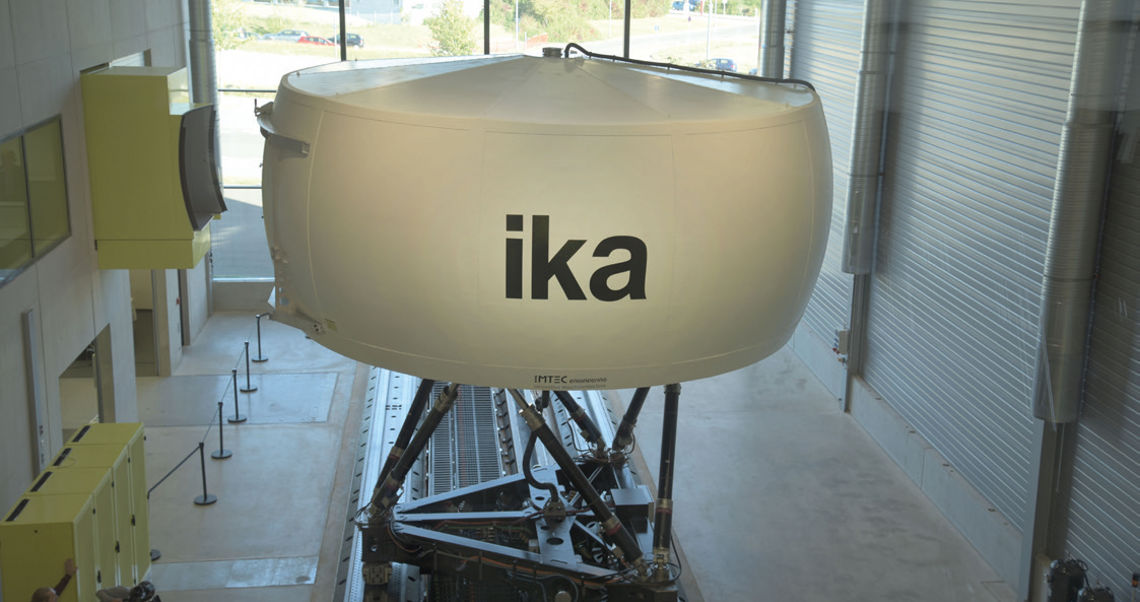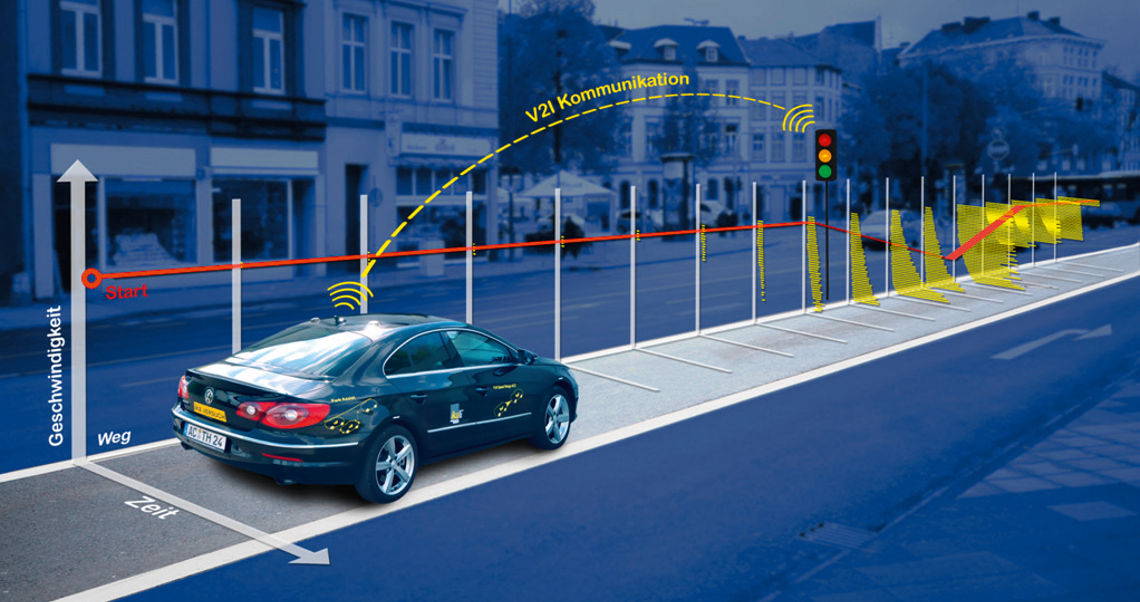![[Titelbild PEGASUS]](/images/artikel/pegasus/IKA_9914_1140x300.jpg)
PEGASUS
Highly automated driving functions are technically feasible, as numerous research and development projects in recent years have shown. In the meantime, the legal framework for the use of automated driving functions in road traffic has also been created. However, before prototypes for highly automated driving can be turned into series vehicles, it must be demonstrated that these vehicles are sufficiently safe.
For this purpose, the vehicles with their automated driving functions must be tested in a variety of traffic situations. In real traffic, these tests would require an immense amount of time and money, which would correspond to a number of well over 100 million test kilometers. In addition, every change to an automated driving function would require a new verification of its safety.
The PEGASUS project has addressed precisely this problem. The project defined a uniform procedure for testing and trialing automated vehicle systems in simulation, on test benches and under real conditions. A continuous and flexible tool chain was developed to secure automated driving and the tests were integrated into the development processes at an early stage. In addition, a cross-manufacturer method for safeguarding highly automated driving functions was created.
Services for Securing Automated Driving
In the PEGASUS project, fka has developed a database that can be used to make relevant traffic scenarios usable for safeguarding purposes. For this purpose, data from various sources (field tests, accident databases, simulation, UAV, etc.) were first harmonized and then further processed using a uniform process chain. In this way, test specifications for the release of highly automated driving functions can be derived based on scenarios contained in the data sources.
The overall aim of the database is to collect relevant scenarios that would otherwise be created when "freeing" a function through a high number of test kilometers, in order to be able to prove the functional safety much more efficiently. With the help of the database, these scenarios do not have to be generated anew each time during the validation process, but can be analyzed directly in suitable test environments with regard to the effect of the highly automated driving function.
Our contribution
Based on the knowledge and experience gained by fka from the PEGASUS project, a number of services have been developed which fka offers its customers:
Scenario Provision / Survey
fka is able to generate real-world scenarios from drone data (levelXdata) using a specially developed method. For this purpose, the data of the drone data sets, such as the highD data set, are converted into scenarios using database mechanics. The developed scenario concept is used, which was derived from the 6-level model.
Data Processing
If the quality of the output data is adequate, we can convert your data from various sources into the input format of the PEGASUS database. For this purpose, fka has defined a minimum requirement for the necessary signals and signal quality.
Scenario Extraction
We carry out an automated extraction of scenarios for you using the PEGASUS methodology based on input data from various sources. The data must be of a quality corresponding to the specifications and must be available in the PEGASUS data format. For PEGASUS scenarios, a 360° panoramic view is required in order to enable mapping in the scenario concept.
Scenario Selection
Based on a specification, we select scenarios from the PEGASUS database for you. For this purpose, the requirements for the test methods must be available.
Local Database
It is also possible to use the PEGASUS database mechanism locally. For this purpose, fka provides a local version of the database mechanics, which can be filled with your own data. The database mechanics calculate corresponding distribution parameters and characteristic values from the user's own data.
Our next Steps
The PEGASUS database and the corresponding database mechanism have been designed, implemented and tested within the PEGASUS project. On this basis, fka GmbH is in close exchange with international industrial partners in order to meet the evolving requirements.
You are interested in the database? Then please feel free to contact us at any time at This email address is being protected from spambots. You need JavaScript enabled to view it..
Currently, fka GmbH is a subcontractor in the national V&V Methods Project of the BMWi. In this project, an urban intersection is the application case. Further information about this project can be found on the website of our cooperation partner, the Institute for Automotive Engineering of the RWTH Aachen University.
Project milestones:
Halftime Event and Symposium
On November 8th and 9th, 2017, the mid-term event and an international symposium took place at the Institute for Automotive Engineering (ika) in Aachen, where all project partners presented their interim results.
Final Event
On 13th and 14th May 2019 the PEGASUS final event and the final PEGASUS symposium took place.
Automated Vehicle Symposium 2019
Breakout Session Safety Assurance (Orlando, 15-18. Juli 2019)
fka World of Research
![[Foto: people working in the background with a abstract image of a process as overlay]](/images/artikel/MBSE/Model_Based_Systems_Engineering.png)
Model-Based Systems Engineering
Introduction and implementation of the Model-Based Systems Engineering (MBSE) approach
We move away from the traditional document-based approach and instead rely on interconnected digital models. A system model serves as a shared platform for communication between all teams involved in development. It acts as a central source of information, ensuring that crucial data is always up to date and accessible.
Read more ...
Strategy & Consulting |
Strategy Teaser
Exciting short studies on innovations and developments in the automotive industry by our experts from Strategy & Consulting.
Read more ...![[Foto: VW ID.3]](/images/artikel/bench/id3/vw-id3-IF2_2262.jpg)
Continuous Bechmarking
VW ID.3 Benchmarking
fka & FEV Consulting launched the comprehensive benchmarking program.
Read more ...
![[Foto: PEGASUS Schema]](/images/artikel/pegasus/PEGASUS-schema-de.png)
![[Foto: PEGASUS UI]](/images/artikel/pegasus/PEGASUS-ui-800x600.png)


![[Foto: Adrian Zlocki]](/images/personen/zlocki-adrian.jpg)